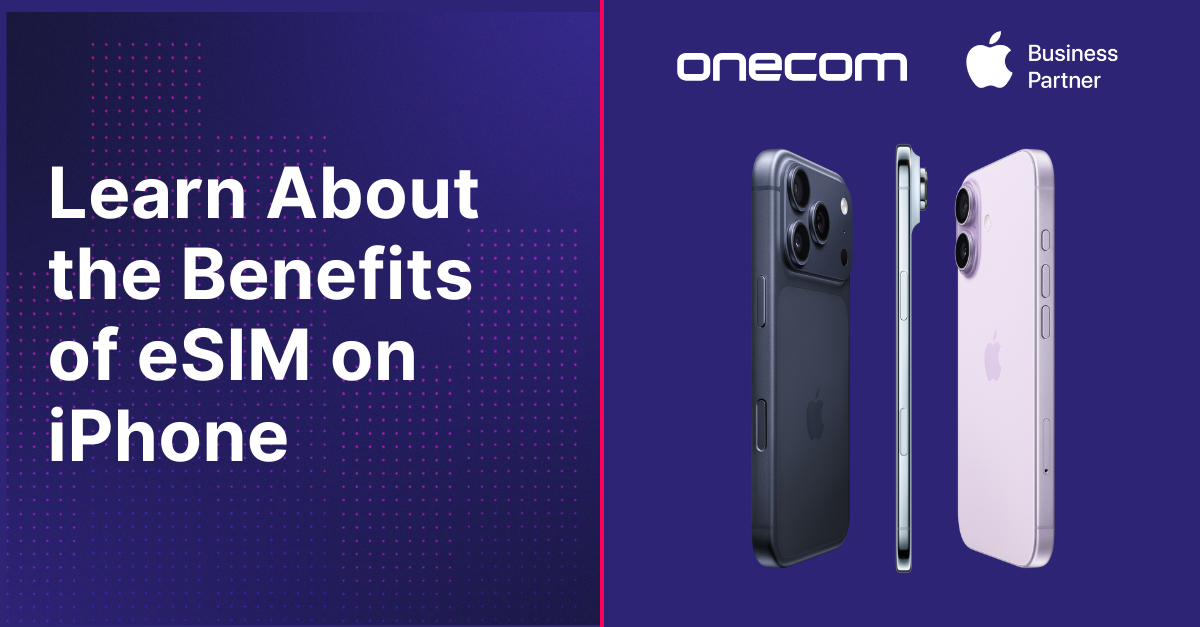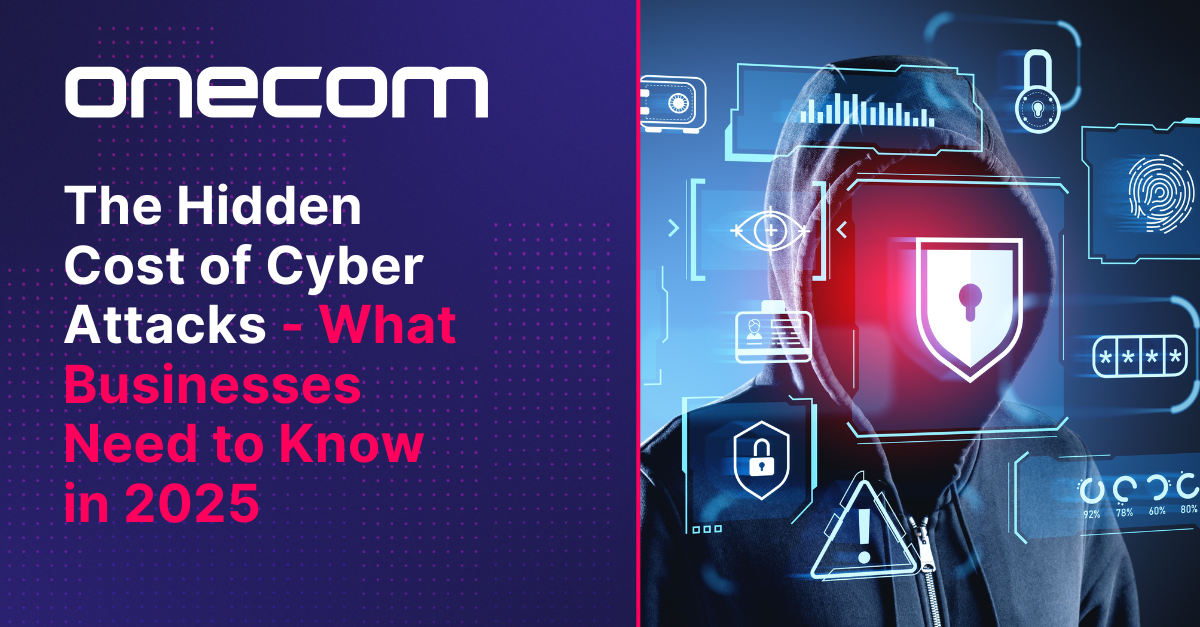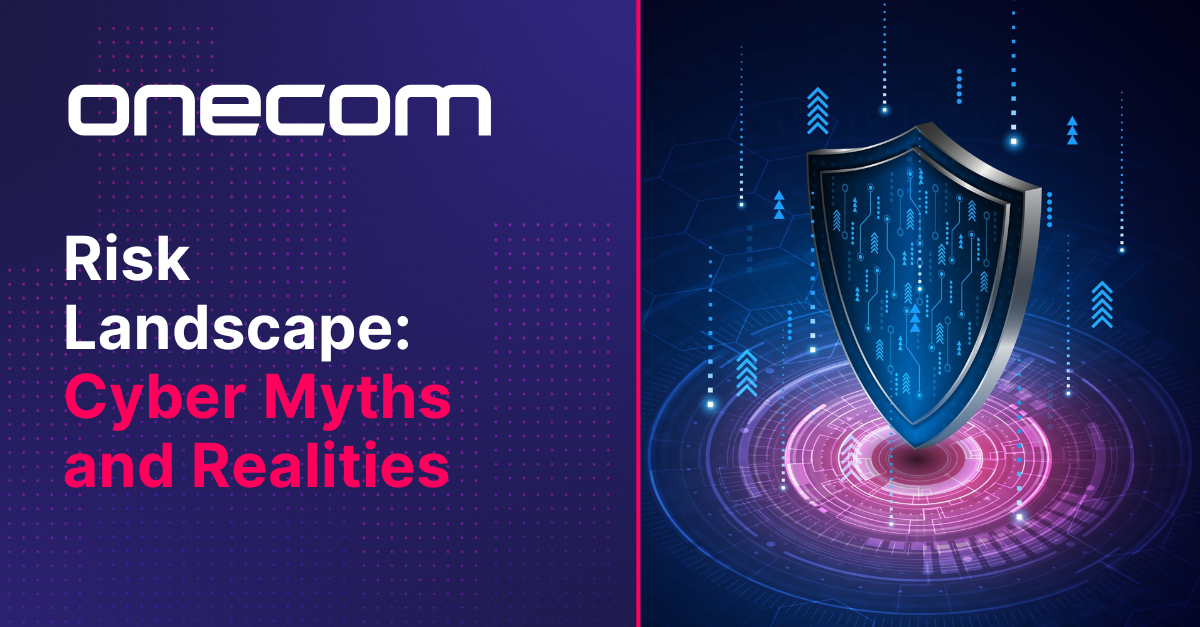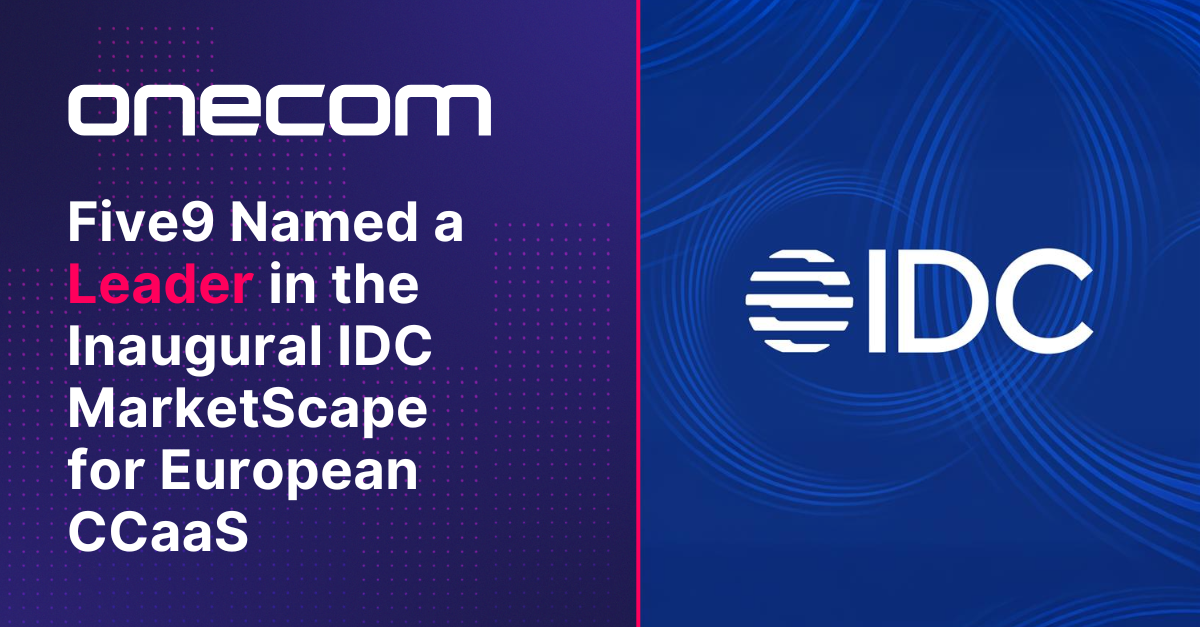OneSPARKS Episode 2 - Transcript
2021 Contact Centre Technology Roadmap with Five9: Building the Case for IVA
Dave Harris [00:00:06]
Hello, and a very warm welcome to the OneSPARKS podcast series. This is a show about telecommunications and IT strategy and insights aimed at senior business professionals. In today's episode, we are looking at the digital workforce and in particular, asking why the intelligent virtual agent or IVA is an important next step in the world of customer service. My name is Dave Harris. And with me to explain the ins and outs of IVA's, I have two expert guests. Colin Campbell is the strategic acquisitions director at Onecom. He's been in the telecommunications industry for over 20 years. He helps customers achieve operational customer service and productivity benefits through the use of communications technologies. John C De Baca is regional director at Five9 in the USA. John has over 22 years experience in unified communications and contact centre markets, as both an entrepreneur and working with the market leaders in collaboration and customer experience. He is focused on helping service providers accelerate sales, define product development and go to market and delivery strategies. Welcome, Colin and John. It's great to have you both on the podcast. OK, well, we better get back to basics first. For those of us less familiar with the digital workforce, could I get you, John, to define the intelligent virtual agent? What is it and what does it do?
John C De Baca [00:01:34]
Thank you very much. And pleasure to be here today, speaking with everyone. So if you think about the digital workforce, they're just like live employees only they're a piece of software. They have skills, they learn over time. And the intent of a digital workforce is to not only help automate and improve the life and expectations of your customers but also improve the day-to-day experience and the day-to-day workload and activities associated with your employees. So overall, think about the digital workforce as a resource that you can take advantage to not only help your customers but also help your employees
Dave Harris [00:02:14]
Colin, when somebody asks you. What's this all about? What's the IVA all about? What's your reply?
Colin Campbell [00:02:18]
Yeah, I think just as John was saying, that a digital workforce can carry out the tasks similar to your human employees, but ultimately they've got additional benefits. So, for example, you know they never take any holidays. You don't go off sick. They can interact across any channel, whether that's a voice call, whether that's a chat interaction on your website. And they can do it in any language. So, you know, in comparison to a human agent, a digital agent can converse in over 120 different languages.
Dave Harris [00:02:53]
So, John, if somebody is sort of looking into this for their company, for their organisation, presumably this, you know, there's going to be some education involved. So how do you start building a case for a digital workforce? Would you say?
John C De Baca [00:03:06]
I take two approaches. One is to understand the macro view and then very quickly transition to the micro view. And that is what is specific to that customer. So at the macro level, you know what's driving the digital labour market? Well, first and foremost, it's difficult to find employees who want to work in contact centres or in support organisations. It's very expensive to train and retain those employees. And then as soon as you have them trained, they then move to another organisation because they now have some skill sets that is very marketable. It's difficult to quickly scale up and down. We saw last year with covid that organisations had to have business agility built into their DNA in order to be able to react to the requirements of the new business environment driven primarily by covid. Customers have an expectation to work in their own language. So think about the difficulty in finding a workforce that speaks multiple languages as well as workforce that's willing to work off-shift hours and holidays to be able to support the business. And then the final piece, which a lot of people do not consider. But if any of you have children at home, you recognise that they have an expectation to work on their own devices in the media that they prefer, which means it's a digital format in more cases than not. Case in point. I have two daughters and they will sit in a room six feet apart and text each other. That is a medium that if you're an organisation and not able to support, you're going to lose relevance with that market set. So at a macro level, that is what we're seeing in the marketplace. At a micro level, you look at particular organisations based on industry solution. Are they a retailer, what particular challenges are associated with the retailer? Are they in logistics or transportation or the medical health care space? And what we've discovered is that their specific use cases that apply to each industry and when we have those conversations we identify first and foremost, what is the challenge, number one. Number two, what are the business systems that we need to support? Is it Salesforce? Is it GIRA? Is it service now? Is it EPIK? If you're in the health care space, is it a banking application in financial services? And then what is our ability to identify real problems that we can solve for that customer and be able to implement a solution where they realise an ROI benefit not only to them, to their customers, but also potentially to their internal employees within an appropriate window. And in many cases, that window is measured in weeks or months, not years.
Dave Harris [00:05:43]
Colin, obviously, that case building that sort of understanding, what are the benefits and those sorts of things? Presumably, that's pretty important, you know, for customers who are not particularly familiar with it or perhaps they're familiar with a sort of earlier version. And perhaps they came across technology, which didn't work perfectly in the past, you know, in those sorts of things. So so this case building, I guess, is important, isn't it?
Colin Campbell [00:06:05]
Yeah, absolutely. Understanding your current state as an organisation, the challenges that you're facing. You know, obviously, we're now coming out with a pandemic, so moving back to a normal way of working. But understanding those challenges and then looking to automate those repetitive tasks, those simple starting off with those repetitive tasks and then building your case from there. So what we're seeing certainly in this space is customers that have got a good handle on their data, so their contact rates that them and the demand they're seeing across there, that different contact points, they're able to pinpoint the areas where, look, we focus our automation efforts in this area we'll see the biggest benefit. And I suppose in practical terms, we're actually seeing it to augment the experience with the existing human agent as well. So doing a lot of that upfront identification with a customer or some of the information gathering processes, so when you eventually do get through to a human agent, the time spent that agent is is most valuable and it delivers the most value to the organisation. So, yeah, that having the data right is the key element to building the case.
Dave Harris [00:00:26]
I'm glad you mentioned the human element there because I've been thinking, you know, as we've been discussing this about the possible reaction, the pushback that you might get from a potential client about the fact that, you know, the face of it, you know, or the robots are coming, we're replacing everybody with electronics and that sort of thing. You know, I mean, I'd really like to ask you both this question, because obviously you're both very experienced in this industry. I mean, do you get that pushback? Do you I mean, the economic arguments, I can see they're obvious, but obviously the human element is a slightly less predictable thing, isn't it, John? What's your view of that?
John C De Baca [00:08:03]
So I'm seeing just the opposite. When you really take the time to understand your customer's environment and you ask them questions such as what do your live agents love to do? And the answer invariably is always they want to help solve a problem for their customer. They want to feel like what they do has meaning and that they're adding value to the organisation. What they do not like to do is answer repetitive questions or questions that over time really burn them out. So, for instance, if they're answering, what are the locations? Right. What are the store hours? You know, what is the response to a particular question in terms of customer support? Things that people can look up on their own or have a digital agent respond to them. That's the type of services that live agents do not prefer doing and in fact, would rather have a digital agent perform for them.
Dave Harris [00:09:04]
OK, that's really interesting isn't it Colin. So so what John is saying that I think is that, you know, potentially your workforce forces life will get more interesting as a result of having these digital agents available at the lower levels, as it were.
Colin Campbell [00:09:18]
Yeah, we've seen this and we've all called into a brand or into our banks and were asked the same four or five questions over and over again, if you can imagine yourself working in that environment and you may be answering 100, 200 calls a day and you're just going through that same element, taking that away and simplifying that that piece. So, you know, if I'm calling and I've got a financial concern, but in order to deal with that concern, you have to I.D. and verify me. Well, just make that a little bit less frictionless. And when they call, it does get through to the agent that dealing with the problem straight away rather than those hygiene factors at the start. And that's a good place to start if you're looking at this, at the first time for an automation point of view.
Dave Harris [00:10:04]
And I wanted you to actually look at some use cases, the reasons why companies should be looking at the digital workforce. I wonder, John if you could address that for me.
John C De Baca [00:10:14]
Great question. And there are so many. So let me just tell you what I've seen in the last two weeks. I've got a very large customer. They have an automated attendant system for an organisation that has over 200 discrete plants. And one of the activities that live agents were engaged in until we proposed digital labour was taking attendance. So because this is a manufacturer, people call in and are there going to be late? Are they going to be tardy? If they are late, is it because they have an illness? And does that illness happen to be covid? If you think about the live agent essentially just taking attendance every day for thousands of employees for three shifts, spending hours just marking a ledger as to present or not, and reason why they may be tardy, it was numbing for that particular customer. So we are automating that. We're allowing the people to call in in one of 11 languages and they can essentially take attendance on their own. That frees up the live agent to work with more important activities because this is an H.R. function, they're now able to spend more time hiring, recruiting, and retaining employees as opposed to just taking attendance. So that's one example. Another example is we had a customer that had to make a decision regarding a bring it on a second shift. They wanted to operate a 16-hour workday knowing that because of the services that were selling, they'd have enquiries past normal business hours. And so the decision to bring onboard a second shift was going to be very expensive. It was also going to create some recruitment and retention challenges for overtime. And so what they decided to do instead was leverage a virtual agent to take those queries for quotes, for requests, as well as enquiries into either recruitment or the particular services that this company was offering. And they did that with a rate of return of three and a half weeks was their ROI on that particular project. So I could go through many more examples. But the case is that when you can identify a real business challenge that our customers are facing, chances are the digital agent can help augment that, if not replace that activity and free up that live agent to do more important tasks.
Dave Harris [00:12:44]
Those are impressive examples aren't they Colin? What's your experience of why companies should be looking at this or the use cases?
Colin Campbell [00:12:52]
Yeah, I think it's similar lines and we're seeing certain industry sectors massively take advantage of the technology, you know, simple things like, you know, booking appointments can be automated. It doesn't need a human agent to, you know, to be waiting to field those conversations. Certainly in the telehealth space as well. So, you know, finding trained resources to meet a shift or demand using this technology, you can reach out to qualified personnel to offer shifts in a sequence way, which, you know, doesn't require a human agent to call round multiple people and wait for call-backs and for people to accept this can be automated now. So lots of different cases that are presenting themselves but or with a similar theme really is around those repetitive elements which don't really add value. Start to look at those and start to think, OK, where could I implement this or think about this differently in my organisation. And, you know, we're seeing some great use cases, as John just talked through.
Dave Harris [00:13:56]
And I was interested by a comment that I think John made earlier on in the podcast where he was talking about, you know, the having to increase workforces very quickly and decrease workforces very quickly because of the whatever the market's doing and how the digital workforce is obviously more adaptable in that sense. So I wonder about scale. And, you know, if you're a relatively small enterprise and you know, and you want to do this, is it easy to upscale, you know, as you become a much bigger enterprise and you know, and you have far more customers to deal with? I mean, is it technologically is it a relatively simple thing to do, John?
John C De Baca [00:14:36]
It is one of the elements that I share with my customers and with our consultants as they engage is to start small and expand, its land and expand strategy. So find a problem within your customer that you can solve. And then as you realise, the benefit at that particular solution, expand into other areas of the business. So for instance, start with natural language call steering. It is the preferred method for most people today to interact with organisations and then expand into doing outbound surveys or appointment scheduling or being able to automate a process or integrate with a back-end business system like Salesforce or ServiceNow or industry specific vertical market. The key is, is knowing that once you've identified a particular problem to solve, moving to the next item just requires that you add capacity, and the capacity in business workflow is provisioned from the cloud, which means that we can turn up or turn down intelligent virtual agents really on the fly. We always tell people that it's 24 hours notice just to give us a bit of time to manage the accounting portion of it and the provisioning. But it's very easy to scale up and scale down
Dave Harris [00:15:55]
And Colin, is that your experience of scale as well, that it's actually a relatively simple thing?
Colin Campbell [00:15:59]
Absolutely. Think of the digital agent. And as just like a human agent, you can hire them but are more flexible terms. For example, if you're a retailer and you're experiencing pre-Christmas peak, for example, so you're the surge in demand for contact. Then there's the ability just to scale up for that specific month and rather and look to rush to the market to get in another 20, 30 agents to sit within your contact centre, you could deliver the same output, maybe with the same amount of virtual agents, but for a third of the cost. So the scalability is there, 24 hours can be switched on or scaled back, but also with our customers, we're enabling an in contract flex as well. So you don't actually need to give us any notice. You can just flex up and burst for the demand, you're seeing, and then it just automatically flex back down when your demand backs off.
Dave Harris [00:16:52]
Okay, so. So that sounds great. And I'm just wondering, though, if you are listening to this thinking, you know, we really should go down this road. You know, we've got to we've got to look at this. I wonder what are the things that you need to consider, or what the things you know you shouldn't forget about if you're going to implement a digital workforce team.
John C De Baca [00:17:12]
So what we spend a lot of time doing is understanding the customer's business. And what we discover in many cases is that we're asking the customer to rethink how they do business. For instance, do they already have business rules around biometrics? What we've discovered is in many cases they do not. And so we help them understand, knowing that security is top of mind for all of our customers, how do we implement a new voice, biometric or digital, biometric environment, understanding, you know, what work can be automated and what are the resources required, not only from a workflow perspective, but understanding how customers are asking questions. Many times we spend capturing a lot of what we call utterances from the customer, which how does how many different ways can the customer ask for the same thing? And do they recognise that we need to train the virtual agent on how to respond to multiple utterances for the same intent. So a lot of the, what we do is spending time with our customers to help them, re-architect their business, understand the customer journey, and be able to modify and take advantage of intelligent virtual agents so that we can process those requests, both for customers as well as internal employees.
Dave Harris [00:18:32]
And, Colin, what do you advise people to think about, you know, that they shouldn't forget about when they're implementing a digital workforce?
Colin Campbell [00:18:39]
Well, I think, you know, we're all human and obviously in some respects resistant to change. When we're looking to change processes, putting the technology aside, it's important to have some clear messaging with your human staff as well around what the positive impact of implementing this technology will be on their role. So, whilst we're going through a consultative engagement, that's great. We're looking at how this service is physically going to be implemented. But we're also advising our customers of what the messaging should be back within the organisation and the positive impact that this can have and that maybe general sort of advice around, look, you know, this is going to offer more flexible terms for your human agents as well, and it's going to simplify their role. So, yeah, it's looking at the human touch as well as the technology layer as well.
Dave Harris [00:19:31]
So I guess as we've all changed management, you know, communication is really key here.
John C De Baca [00:19:36]
Yeah, so change management is key and as I mentioned earlier, this is not a cut and paste exercise. The benefit of having a digital workforce is it gives our customers the ability to rethink how they do business, not only from a business process side but also from a customer journey. And what is the net result of the business? Great example. You know, many of our customers, to date, we're not able to add multiple languages or if they did, it was at a very high cost. So having them think about what would it mean to be able to do business in multiple languages, it gives them an opportunity, identified new customer sets, maybe go after different demographic. That was something that may not have been possible for them in the past, and now they can implement it, leveraging a digital workforce. So what I love about my job is that the change management has realised identifiable benefits for our customers, but it does require that we spend some time collectively understanding the business challenges in helping the customer recognise the potential benefits of a digital agent.
Dave Harris [00:20:44]
You've been in the industry a long time, as you said in the introduction over 20 years. And I guess things have changed a great deal in that time. And I wonder whether, first of all, you know what you'd have said to your 21-year-old self if you'd been able to speak to him then. And also, you know, did you have any idea that things would change as fast as they have?
John C De Baca [00:21:05]
No idea. When I started in this industry, we were still using centralised computing off of mainframe and midrange computers. So just to see the rate of change is been amazing and being able to embrace the change and recognise it for what it is. There's a data point I heard last year that really struck home for me, and that was that the average age for a person to start interacting with a virtual agent is four years old. The four-year-old using their iPad or their Google device, asking for applications, asking for playlists, to turn on the television to start their favourite programmes, is four years old. I mean, recognising that there are entire generations for which a digital interaction is the norm, not the exception. And then trying to understand what does that mean for me? What does that mean for my colleagues? And how do we take advantage of it and service that need? Closing out, I think, you know, embracing change, enjoying it, because it's been a lot of fun watching this industry evolve. And looking back, I wouldn't change a thing. I've enjoyed every minute of it.
Dave Harris [00:22:18]
Thank you both very much for joining us on the podcast today. You've been listening to the OneSPARKS podcast bought to you by Onecom. I'm Dave Harris and I've been talking to Colin Campbell, the strategic acquisitions director at Onecom and John C. De Baca, regional director at Five9. I hope you've enjoyed their expert insight into the use and importance of the intelligent virtual agent. Please see our show notes for a link to our website at www.onecom.co.uk/podcast, where you can find out about everything mentioned in today's episode. If you've enjoyed the podcast, then please subscribe and share with your friends and colleagues. In the meantime, stay safe and thanks for listening.



